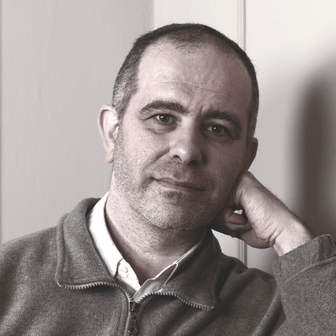Zwingli

(Huldreich or Huldrych), a Swiss religious reformer
(Wildhaus, St. Gallen 1484 - Kappel, Zurich, 1531). Ordained
clergyman in 1506 and appointed parish priest of Glaurus, imbued
with a humanistic-Erasmian spirituality, he stigmatized the
degenerations of popular mercy and of the theological reflection
and he advocated a return to the simplicity of the primitive
Church. He became parish priest (1518) at Zurich Cathedral, he
reformed the town Church with the support of the Senate, which took
control (1523), thus breaking away from Rome. From Zurich the
Reform spread across the rest of Switzerland (Bern, Basel,
Konstance, Biel, Sciafussa) and in southern Germany. Through the
study of Saint Paul and Saint Augustine, he matured the inner
experience, independently of Luther, that brought him to lose
interest in the ethical Christianity of Erasmus and to consider
salvation as a work of Grace, with the exception of merits, to
consider faith as confidence in God’s mercy, the Sacred Scripture
as the only norm on faith and morality and, therefore, superior to
the Church and that the Church does not need either a Pope or
bishops or ordained priests.
With the support of the city authorities, that had been capable of
winning his cause, Zwingli abolished, considered superstitious
practices, processions, devotion to the Virgin Mary and the saints,
fasting, the sacraments except for Baptism and the Supper, removed
or destroyed the sacred images from the churches, abolished the
ecclesiastical celibacy and the monastic vows and he assigned their
assets to the assistance of the poor people and to the cult.
Compared to Luther, Zwingli gave greater importance to the problem
of sanctification than to that of justification; moreover, due also
to the influence of Oecolampadius, he radicalized the depreciation
of the sacraments, considering the same supper and the baptism as
pure symbols (the Marburg Colloquy, in 1529, which was called in
order to find an agreement between the two reformed doctrines, did
nothing but emphasize the contrasts between Lutheranism and
Zwinglianism). The lacked agreement with Luther also led to the
failure of a project of great political alliance directed against
the Habsburg dynasty that Zwingli had planned with Philip I,
Landgrave of Hesse. In 1531 they came to the armed conflict of
Kappel during which Zwingli perished, and this favoured the
Catholic cantons. With the progressive advancement of Calvinism,
the doctrines of Zwingli lost a great part of their meaning and
remained confined to the original cantons from German-speaking part
of Switzerland. The theological thought of Zwingli is laid out
organically in De vera et falsa religione commentarius
(1525).

Ciao,
mi chiamo Stefano.
Piemonte Sacro è la mia passione dal 2001.
AIUTA il progetto Piemonte Sacro a crescere
DONA SOLO 2 euro! Te ne sarò GRATO .




